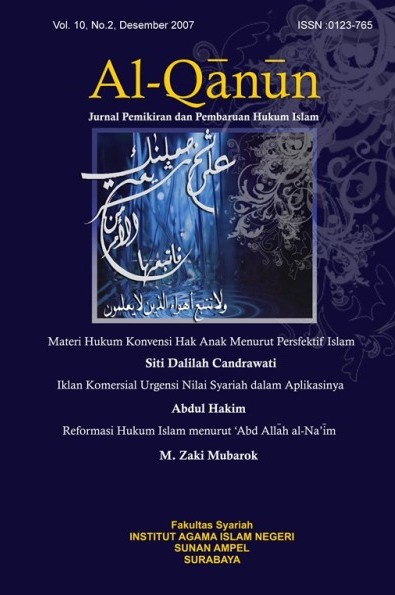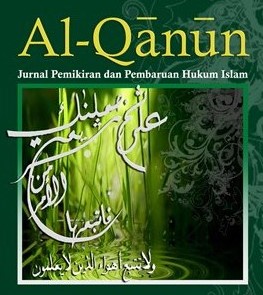Hukum Islam: dari Formal-Tekstual Menuju ‎Kontekstual-Substansial (Pergulatan Wacana di ‎Mesir)‎
DOI:
https://doi.org/10.15642/alqanun.2007.10.2%20Des.300-325Keywords:
Hukum Islam, formal-tekstual, kontekstual-substansial, rekonstruksi, dekonstruksi.Abstract
This article discusses discourse of islamic jurisprudence in Egypt. Islam came to Egypt in 639 AD, during Umar ibn ibn al-Khattab’s reign. Since then, Egyptian community study Islamic teaching, including Islamic jurisprudence. In the 20th century AD, modernization also happened in Egypt. In the area of Islamic studies, the modernization manifests in the facts that many Egyptian students studied in western countries. As they returned, they were able to influence Islamic discourse in their country. One of their campaign was establishing western-like schools in Egypt. This move created impact towards the discource of islamic jurisprudence in Egypt since there was process of dialog between western approach and Islamic jurisprudence. One subsequent result was the shift from formal-textual thought to contextual-substantial. Issues of reconstruction of Islamic law or even deconstruction of it keep flourishing. The idea of liberal jurisprudence has driven Islamic jurisprudence.






